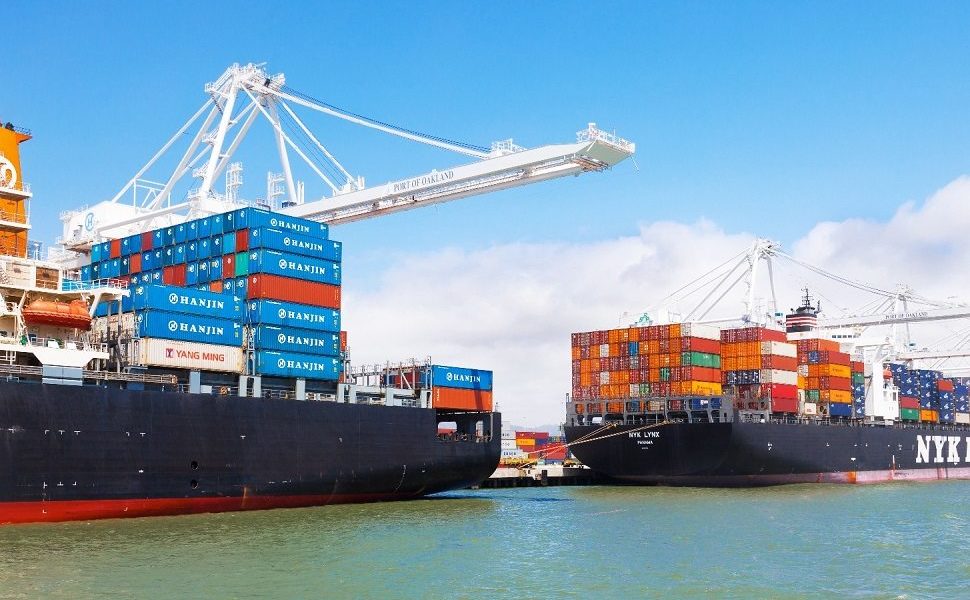Business
Nigeria Targets Share of $380bn Global Seaborne Trade

- Nigeria Targets Share of $380bn Global Seaborne Trade
The global seaborne trade is increasing tremendously and Nigeria is putting everything in motion to ensure that there is as much local participation in it as possible.
According to maritime sources, the global seaborne trade rose to 112 per cent in the third quarter of 2018.
Unfortunately, Nigeria is not even listed among nations that actively participate in the global seaborne trade and this has been the situation for decades, since the decline of the first Nigerian National Shipping Line.
Currently, Nigeria has no national vessel bearing its flag and all its cargoes are borne by foreign shipping lines.
While presenting a paper titled ‘Indigenous Fleet Development, what Options’, the Executive Secretary, Nigerian Shippers Council, Mr Hassan Bello, noted that Nigerians had tried and failed to enter into international shipping, not necessarily due to the huge capital investment required, but because of their inability to compete with foreign operators who had list of incentives from their home governments.
He said, “At the moment, Nigeria cannot claim to have a viable indigenous shipping fleet and this is a disappointment, considering that about 60 to 70 per cent of ship traffic to West and Central Africa are destined for Nigeria.”
Bello said the NNSL was established to boost the image of the country by promoting the Nigerian flag, improving the country’s balance of payment, among other objectives.
He noted, however, that the company operated at a loss due to the modernisation in ship type coupled with evolving technology in the late 80s and 90s.
He recommended private instead of government control of the shipping business, adding that government control would lead to monopoly, non-economic choice of ships and routes, government interference and lack of capacity to compete.
According to the International Maritime Organisation, over 90 per cent of world trade is borne by sea and the real time growth in world Gross Domestic Product in the last two decades is 73 per cent.
Also, world exports and imports in 2017 were $17.8bn and $16.1bn respectively.
Reports from these international agencies also tied global trade to shipping, noting that shipping was the lifeblood of the global economy.
The International Chamber of Shipping and the United Nations Conference on Trade and Development estimated that the operation of merchant ships contributed about $380bn in freight rates within the global economy, equivalent to about five per cent of world trade.
According to it, there were over 50,000 merchant ships trading internationally, transporting every kind of cargo, adding that some of the vessels could cost up to $200m to build.
The world fleet is registered in over 150 nations and manned by over a million seafarers of virtually every nationality.
UNCTAD revealed that in terms of participation, the top 35 flags of registration by tonnage in 2018 were Panama, Marshall Islands, Liberia, Hong Kong (China), Singapore and others.
In its Review of the 2018 Maritime Transport, the body reported that with regard to shipping value chain, Germany was the largest container ship owning country.
Stakeholders are, however, determined to get more Nigerians into the global shipping business.
The Nigerian Maritime Administration and Safety Agency in 2017 set up the Cabotage Compliance Strategy to create room for more indigenous shipowners to trade in Nigeria’s territorial waters.
The agency said in line with the new strategy, it would no longer grant permission for foreigners to take on jobs that Nigerians were qualified to handle aboard vessels trading in Nigeria.
While unveiling the enormous potential of the maritime sector in the next two years, the Director-General, NIMASA, Dr Dakuku Peterside, said the government had finalised plans to empower local shipowners to acquire vessels and also build capacity to compete in international trade.
Peterside said in addition to the $300m Cabotage Vessel Financing Fund, the agency also sought alternative source of finance that could be accessed at single-digit by shipowners.
The Director-General, the Nigerian Content Development and Monitoring Board, Simbi Wabote, said the agency had equally partnered with NIMASA to increase local participation in the shipping sector.
Wabote, whose agency established $200m Nigerian Content Development Fund to aid the promotion of local content in the oil and gas sector, said efforts had been intensified to project local shipowners to the forefront of global seaborne trade.